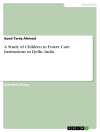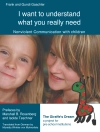This book explores the ethical dimensions surrounding the development of education for sustainable development within schools, and examines these issues through the lens of ethical literacy. The book argues that teaching children to engage with nature is crucial if they are to develop a true understanding of sustainability and climate issues, and claims that sustainability education is much more successful when pupils are treated as moral agents rather than being passive subjects of testing and assessment. The collection brings together a range of fresh and creative perspectives on how issues around ethical literacies can be elaborated and expanded with regard to democratic sustainability education. The use of children´s books in teaching about sustainability is carefully explored, as are the ethical and aesthetic dimensions of environmental education. Including an afterword by Arjen Wals, Professor of Transformative Learning for Socio-Ecological Sustainability, the book will be of great interest to students and researchers in the field of sustainability education.
विषयसूची
Chapter 1. Highlighting Ethics, Subjectivity and Democratic Participation in Sustainability Education: Challenges and Contributions; Olof Franck.- Chapter 2. Philosophizing with Transdisciplinarity, Relational Knowledge and Ethics in Education for Sustainable Development; Marie Grice.- Chapter 3. Pupils Views on Moral Competence in School; Annika Lilja.- Chapter 4. Fiction at School for Educational Purposes: What Possibilities do Students Get to Act as Moral Subjects?; Anna Lyngfelt.- Chapter 5. Discourses of Available and Sustainable Lives: Ethical Literacy Offered to Tweens Through Fiction Reading; Christina Osbeck.- Chapter 6. Windows on a Changing World: Using Children’s Literature as an Aesth/Ethical Trope in Early Years Education for Sustainability; Dawn Sanders.- Chapter 7. Challenging Discourses in Early Childhood Education for Sustainability: A Posthuman Perspective; Kassahun Weldemariam.- Chapter 8. Life-World Perspectives on Art-based Environmental Education and Sustainability; Margaretha Häggström.- Chapter 9. Aesthetic Experiences Relating to Living Plants: A Starting Point towards Framing Humans’ Relationship with Nature; Eva Nyberg.- Chapter 10. Concluding Remarks; Olof Franck & Christina Osbeck.
लेखक के बारे में
Olof Franck is Associate Professor of Philosophy of Religion and Senior Lecturer in Subject Matter Education in Social Studies at the Department of Pedagogical, Curricular and Professional Studies, University of Gothenburg, Sweden.
Christina Osbeck is Associate Professor of Religious Studies and Senior Lecturer in Subject Matter Education in Social Studies at the Department of Pedagogical, Curricular and Professional Studies, University of Gothenburg, Sweden.












